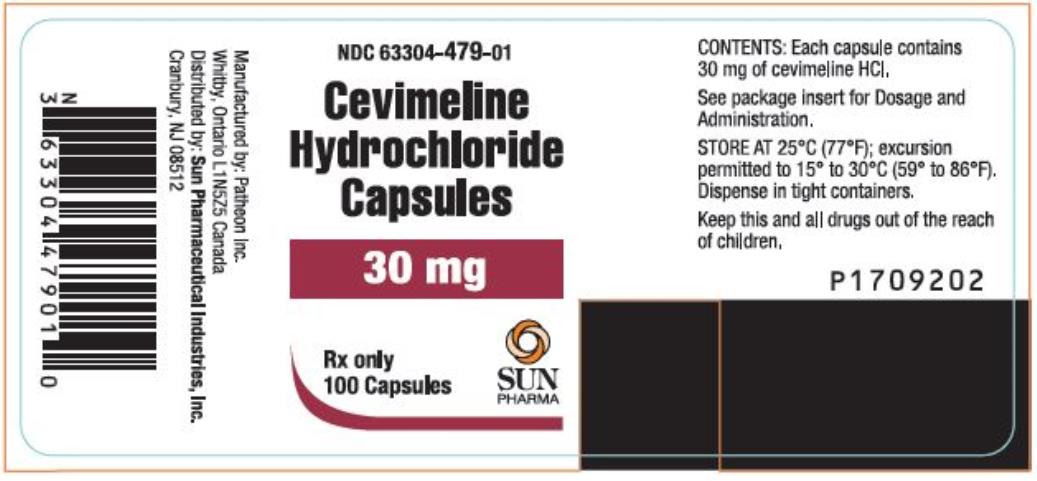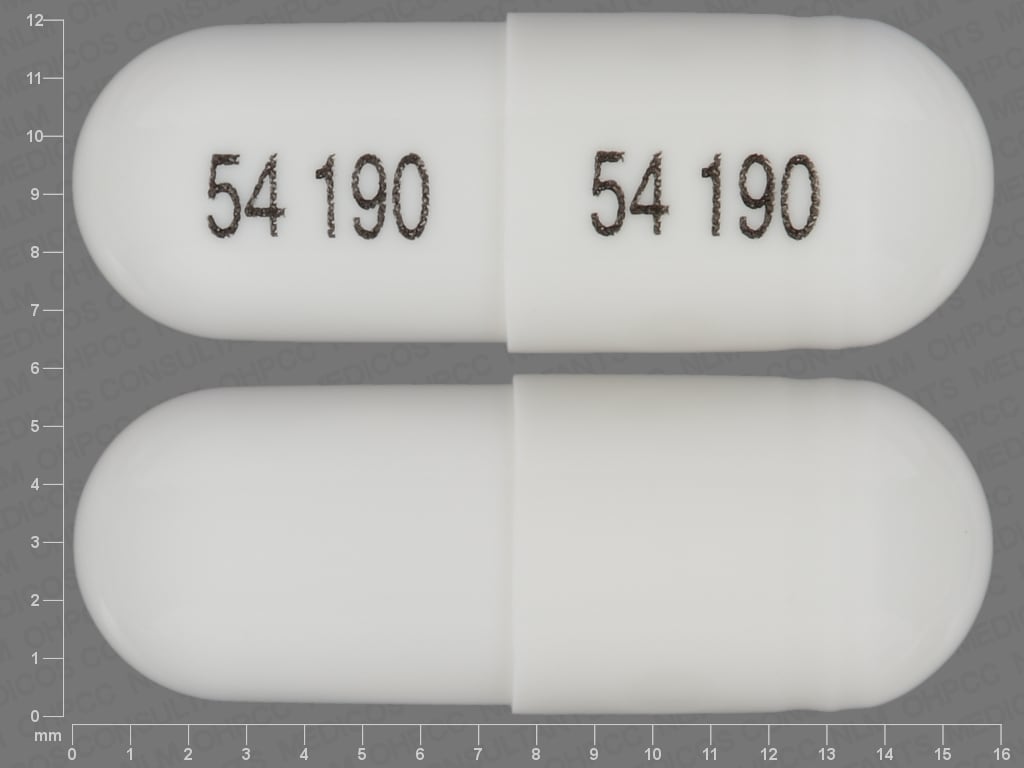Cevimeline
Generic name: cevimeline
Brand name: Evoxac
Dosage form: oral capsule (30 mg)
Drug class: Cholinergic agonists
Medically reviewed by A Ras MD.
What is cevimeline?
Cevimeline is a prescription medicine that is used to treat dry mouth.
Description
Cevimeline is cis -2’-methylspiro{1-azabicyclo [2.2.2] octane-3, 5’-[1,3] oxathiolane} hydrochloride, hydrate (2:1). Its empirical formula is C10H17NOS.HCl.½ H2O, and its structural formula is:

Cevimeline has a molecular weight of 244.79. It is a white to off white crystalline powder with a melting point range of 201 to 203oC. It is freely soluble in alcohol and chloroform, very soluble in water, and virtually insoluble in ether. The pH of a 1% solution ranges from 4.6 to 5.6. Inactive ingredients include lactose monohydrate, hydroxypropyl cellulose, and magnesium stearate.
Before taking cevimeline, tell your doctor:
- If you are allergic to cevimeline; any part of this medicine; or any other drugs, foods, or substances. Tell your doctor about the allergy and what signs you had.
- If you have any of these health problems: Asthma, glaucoma, or swelling in parts of the eye.
- If you are breast-feeding or plan to breast-feed.
This is not a list of all drugs or health problems that interact with cevimeline.
Tell your doctor and pharmacist about all of your drugs (prescription or OTC, natural products, vitamins) and health problems. You must check to make sure that it is safe for you to take cevimeline with all of your drugs and health problems. Do not start, stop, or change the dose of any drug without checking with your doctor.
What are some things I need to know or do while I take cevimeline?
- Tell all of your health care providers that you take cevimeline. This includes your doctors, nurses, pharmacists, and dentists.
- Avoid driving and doing other tasks or actions that call for you to be alert or have clear eyesight until you see how cevimeline affects you.
- Lowered night eyesight may happen. Use care at night when driving or doing other tasks that call for clear eyesight. Keep work space well lit.
- Be careful in hot weather or while being active. Drink lots of fluids to stop fluid loss.
- Tell your doctor if you are pregnant or plan on getting pregnant. You will need to talk about the benefits and risks of using cevimeline while you are pregnant.
How is cevimeline best taken?
Use cevimeline as ordered by your doctor. Read all information given to you. Follow all instructions closely.
- Drink lots of noncaffeine liquids unless told to drink less liquid by your doctor.
- Keep taking cevimeline as you have been told by your doctor or other health care provider, even if you feel well.
What do I do if I miss a dose?
- Take a missed dose as soon as you think about it.
- If it is close to the time for your next dose, skip the missed dose and go back to your normal time.
- Do not take 2 doses at the same time or extra doses.
What are the side effects of cevimeline that I need to call my doctor about immediately?
WARNING/CAUTION: Even though it may be rare, some people may have very bad and sometimes deadly side effects when taking a drug. Tell your doctor or get medical help right away if you have any of the following signs or symptoms that may be related to a very bad side effect:
- Signs of an allergic reaction, like rash; hives; itching; red, swollen, blistered, or peeling skin with or without fever; wheezing; tightness in the chest or throat; trouble breathing, swallowing, or talking; unusual hoarseness; or swelling of the mouth, face, lips, tongue, or throat.
- Signs of high or low blood pressure like very bad headache or dizziness, passing out, or change in eyesight.
- Signs of a urinary tract infection (UTI) like blood in the urine, burning or pain when passing urine, feeling the need to pass urine often or right away, fever, lower stomach pain, or pelvic pain.
- Shortness of breath.
- Very upset stomach or throwing up.
- Severe diarrhea.
- Fast or slow heartbeat.
- A heartbeat that does not feel normal.
- Feeling confused.
- Change in eyesight.
- Shakiness.
- Too much sweat or fluid loss.
- More tears.
- Stomach cramps.
What are some other side effects of cevimeline?
All drugs may cause side effects. However, many people have no side effects or only have minor side effects. Call your doctor or get medical help if any of these side effects or any other side effects bother you or do not go away:
- Upset stomach.
- Runny nose.
- Diarrhea.
- Headache.
- Nose stuffiness.
- Stomach pain or heartburn.
- Cough.
- Sweating a lot.
- Signs of a common cold.
These are not all of the side effects that may occur. If you have questions about side effects, call your doctor. Call your doctor for medical advice about side effects.
You may report side effects to the FDA at 1-800-332-1088. You may also report side effects at https://www.fda.gov/medwatch.
If overdose is suspected:
If you think there has been an overdose, call your poison control center or get medical care right away. Be ready to tell or show what was taken, how much, and when it happened.
How do I store and/or throw out cevimeline?
- Store at room temperature.
- Store in a dry place. Do not store in a bathroom.
- Keep all drugs in a safe place. Keep all drugs out of the reach of children and pets.
- Throw away unused or expired drugs. Do not flush down a toilet or pour down a drain unless you are told to do so. Check with your pharmacist if you have questions about the best way to throw out drugs. There may be drug take-back programs in your area.
Label
PRINCIPAL DISPLAY PANEL


